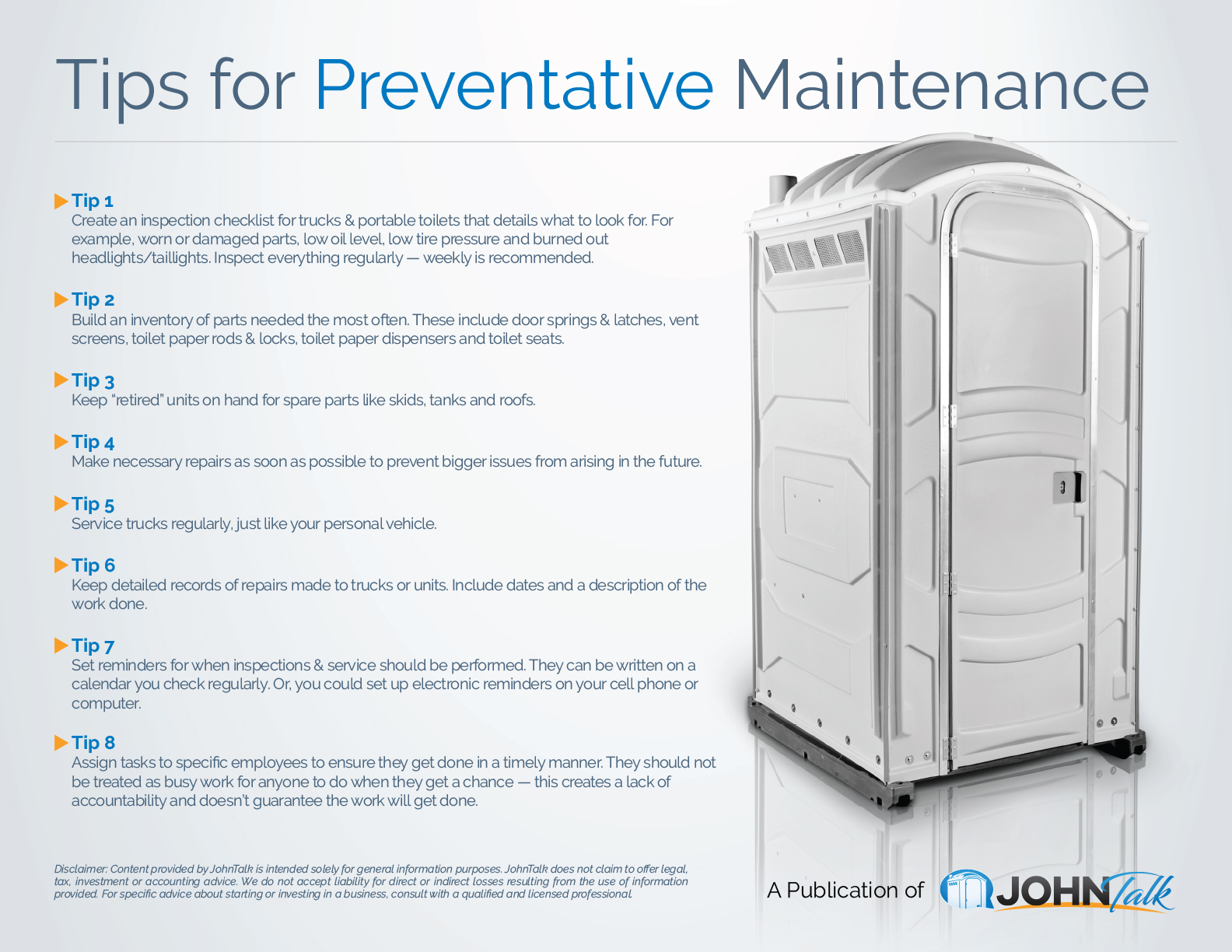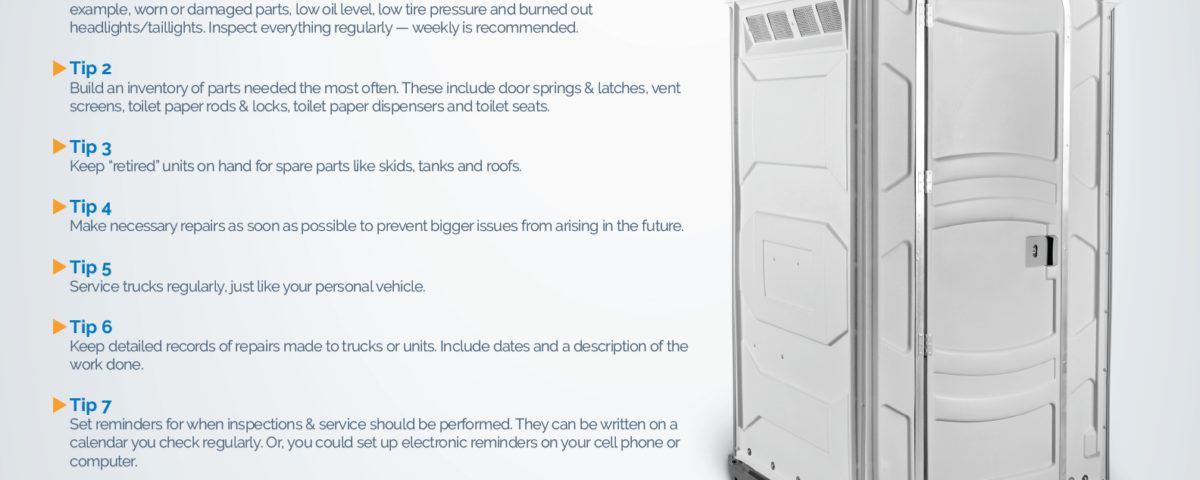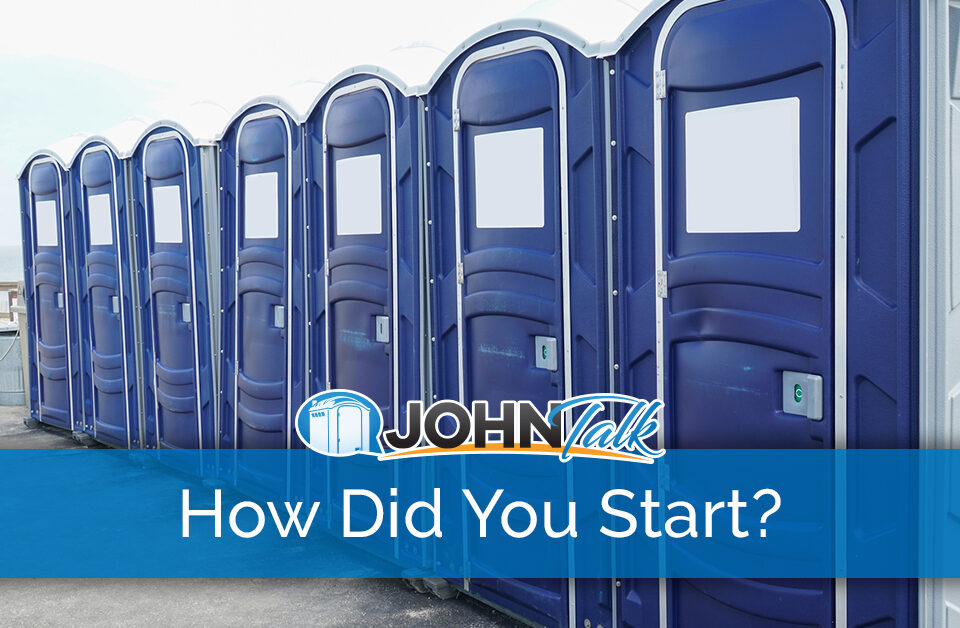
Fun Ways to Market Your Business
June 18, 2018
How to Incorporate Technology Into Your Business
June 18, 2018It’s often said that it’s better to be proactive than reactive. This holds true when it comes to preventative maintenance for your portable sanitation business. There are countless things that could go wrong with your trucks and portable toilets to disrupt your day-to-day activities. By performing preventative maintenance, you decrease the chances of downtime while also taking steps to avoid much more costly repairs. Here are some tips for preventative maintenance that you can implement to keep your operation running smoothly:

Like this infographic? Share it with your friends and colleagues!
Get the JohnTalk “ALL-ACCESS PASS” & become a member for FREE!
Benefits Include: Subscription to JohnTalk Digital & Print Newsletters • JohnTalk Vault In-Depth Content • Full Access to the JohnTalk Classifieds & Ask a PRO Forum
Looking to Take Your Portable Restroom Business to the NEXT LEVEL? Download our FREE Guide: “Your Guide to Operating A Portable Restroom Business.”
Thinking About GETTING INTO the Portable Restroom Industry? Download our FREE Guide: “Your Guide to Starting A Portable Restroom Business.”
Tips for Preventative Maintenance
- Tip 1: Create an inspection checklist for trucks & portable toilets that details what to look for. For example, worn or damaged parts, low oil level, low tire pressure and burned out headlights/taillights. Inspect everything regularly — weekly is recommended.
- Tip 2: Build an inventory of parts needed the most often. These include door springs & latches, vent screens, toilet paper rods & locks, toilet paper dispensers and toilet seats.
- Tip 3: Keep “retired” units on hand for spare parts like skids, tanks and
- Tip 4: Make necessary repairs as soon as possible to prevent bigger issues from arising in the future.
- Tip 5: Service trucks regularly, just like your personal vehicle.
- Tip 6: Keep detailed records of repairs made to trucks or units. Include dates and a description of the work done.
- Tip 7: Set reminders for when inspections & service should be performed. They can be written on a calendar you check regularly. Or, you could set up electronic reminders on your cell phone or computer.
- Tip 8: Assign tasks to specific employees to ensure they get done in a timely manner. They should not be treated as busy work for anyone to do when they get a chance — this creates a lack of accountability and doesn’t guarantee the work will get done.





